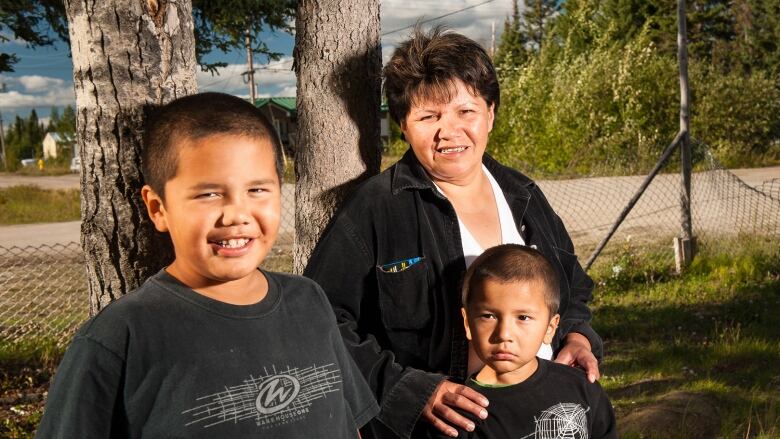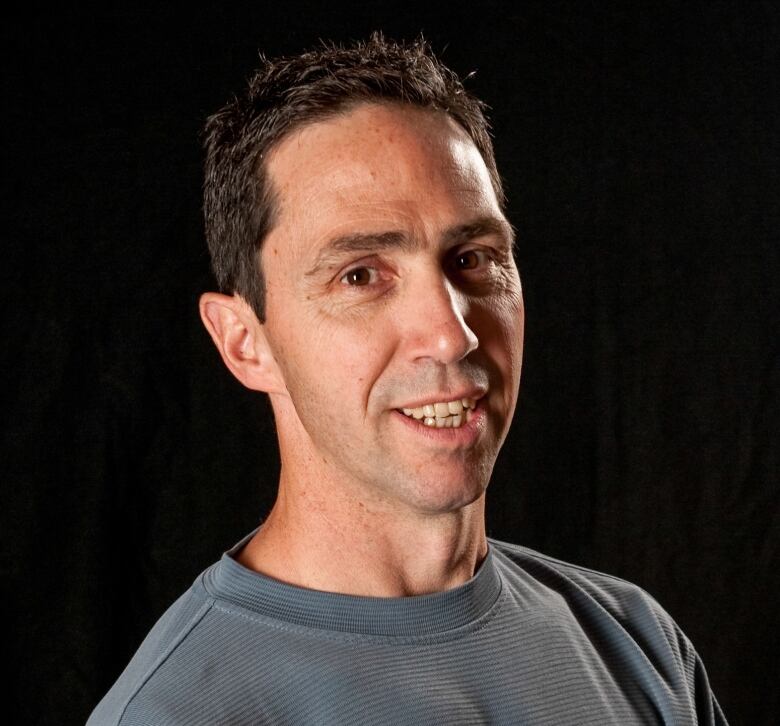Mental health advocate aims to show 'collateral damage' caused by suicide
'We can do something with our story,' says Scott Chisholm, founder of Collateral Damage project

When Scott Chisholm lost his father to suicide in 1982, he was 17 and no one at his high school wanted to talk about it.
It's an experience that affected him so deeply, he's spent the last decade creating a dialogue about how suicide affects those who are left behind.
This week, he's bringing that dialogue to Nunavut, where Chisholm hopes to do more than "just talk."

Chisholm founded the Collateral Damage project, with the goal of creating a proactive dialogue about suicide and "definite tools" for teachers, nurses and other "gatekeepers."
"Talking about it is not going to cause it," he said. "The solutions are there, if we're willing to listen."
Coming to Nunavut is 'critical'
An avid photographer, Chisholm began his journey to reduce the stigma surrounding suicide by taking portraits of people who lost a loved one to suicide.
That one-year projectbecame several years and after this year he will have visited every province and territory.
Chisholmsays including Inuit is"critical."
"I don't believe I could do this book and do this work without stories from Nunavut."

While he's coming toNunavutto speak at theCanadianAssociation for Suicide Prevention's annual conference, he says he's also hoping to find people who want to share their stories of loss.
In Nunavut, there are many.
In 2013 alone,45 Nunavummiutdied by suicide amounting to a rate that's 13.5 times the national average. The statistic was so dramatic, the territory's chief coroner launched an inquest investigating the issue.
- Declaring Nunavut suicides a crisis a 'small' but important step, says father
- Nunavut's suicide inquest prompts pleas for action, but progress 'slow'
'I won't just take photos and leave'
Chisholm says he is committed to giving more than he takes from people in Nunavut.
"I won't just take photos and leave," he said. "I just won't do that."
In fact, Chisholm says he's been working with the Embrace Life Council toplan trips to several communities. He wants to provide workshops that will show community members ways to use art and photography as toolsto express themselves.
"It really is the path to telling stories," he said.
"Photography is one piece. My mother gave me a camera when I was 15 years old and it was my way of telling my stories.For some people it's a paint brush. For some people it's beading. But art really allows us to express ourselves."
- Susan Aglukark to provide workshops for Attawapiskat youth
- Northern Lights documentary shows how photography is helping Inuit youth
- New support group connects Nunavut 'suicide survivors' in Iqaluit
Chisholm has also gathered information on what mental health supports are available in each community, and that doesn't just mean nurses and counsellors it could also be teachers, elders and the Nunavut Kamatsiaqtut Help Line.
Anyone in Iqaluit who is interested in sharing their story can meet Chisholm at the Elder's Qammaq from 6 to 9 p.m. this Thursday.
You can also find out more about the Collatoral Damage project by visiting its website or calling 1-888-835-9041.












_(720p).jpg)


 OFFICIAL HD MUSIC VIDEO.jpg)
.jpg)



























































































